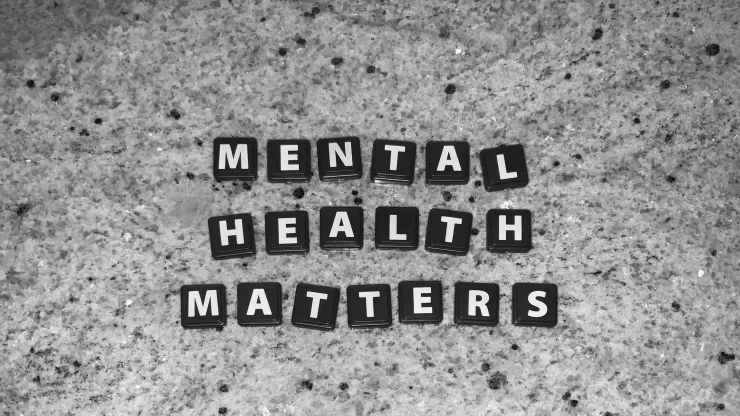The Art of Origami
Origami is the ancient Japanese art of paper folding, which involves transforming a flat sheet of paper into a finished sculpture through folding and creasing techniques.
It is a creative and meditative practice that has been enjoyed by people of all ages and cultures for centuries.
Origami is not just a fun pastime, but also a therapeutic and educational tool that can enhance mental health, boost creativity, and promote well-being.
Origami has become increasingly popular in recent years, as more people discover its benefits for mental and emotional wellness.
It is a low-cost and accessible activity that can be done anywhere, anytime, with just a piece of paper and a few basic folding techniques.
Whether you are looking to reduce stress, improve focus, or simply enjoy a creative outlet, origami can provide a path to happiness and well-being.
Jump to Section
The Benefits of Origami for Mental Health
Origami has been shown to have a range of positive effects on mental health, including reducing stress and anxiety, improving mood and cognitive function, and enhancing self-esteem and social skills.
Research has found that origami can activate the parasympathetic nervous system, which promotes relaxation and reduces the physiological effects of stress.
It can also increase dopamine and serotonin levels in the brain, which are associated with feelings of pleasure and happiness.
Origami can be especially beneficial for people with mental health conditions such as depression, anxiety, and ADHD. It can provide a sense of purpose and accomplishment, which can boost self-esteem and confidence.
It can also improve focus and attention, which can help manage symptoms of ADHD. Additionally, origami can be a social activity, which can help reduce feelings of isolation and loneliness.
How Origami Can Boost Creativity and Productivity
Origami is a highly creative activity that can stimulate the imagination and enhance problem-solving skills.
It requires a combination of visual-spatial skills, fine motor control, and logical reasoning, which can all contribute to cognitive flexibility and creativity.
Origami can also be a useful tool for brainstorming ideas, as it allows you to experiment with different shapes and designs in a tactile and interactive way.
Origami can also improve productivity by promoting a sense of flow and engagement.
When you are absorbed in the process of folding and creating, you enter a state of focused attention that can help you stay on task and avoid distractions.
This can be especially helpful in situations where you need to concentrate for long periods of time, such as studying, working on a project, or completing a task.
The Therapeutic Effects of Folding Paper
Origami has a range of therapeutic effects that can promote physical and emotional well-being. It can improve hand-eye coordination, fine motor skills, and spatial awareness, which can be beneficial for people with neuromuscular disorders or injuries.
It can also provide a sense of control and mastery, which can be empowering for people with chronic pain or other health conditions.
In addition, origami can be a form of self-expression and communication, which can be helpful for people who have difficulty expressing themselves verbally. It can also be a way to process emotions and experiences in a non-verbal way, which can be helpful for people who have experienced trauma or other forms of emotional distress.
Origami as a Mindfulness Practice
Origami can be a form of mindfulness practice that can help you cultivate awareness, presence, and acceptance. When you are folding paper, you are fully engaged in the present moment, which can help you let go of worries and distractions. It can also help you develop patience and perseverance, as you work through the challenges of creating a complex design.
Origami can also be a way to practice acceptance and non-judgment.
When you make a mistake or encounter a difficult fold, you have the opportunity to practice self-compassion and resilience, rather than getting frustrated or giving up.
This can be a valuable lesson that can be applied to other areas of life.
Embracing the Art of Origami for Happiness and Well-being
Origami is a versatile and accessible art form that can provide a range of benefits for mental, emotional, and physical well-being.
Whether you are looking to reduce stress, boost creativity, or cultivate mindfulness, origami can provide a path to happiness and well-being.
So why not give it a try? All you need is a piece of paper and a willingness to explore your creative potential.
FAQ
What materials do I need to start practicing origami?
All you need to start practicing origami is a piece of paper and a flat surface to work on.
You can use any type of paper, but origami paper is recommended because it is thin and easy to fold.
You can also use scissors and glue if you want to create more complex designs.
Do I need any special skills to practice origami?
No, you do not need any special skills to practice origami. Origami is a learnable skill that anyone can master with practice and patience.
There are many resources available online and in books that can teach you the basic folding techniques and provide step-by-step instructions for creating different designs.
Can origami be used as a therapeutic tool?
Yes, origami can be used as a therapeutic tool to promote mental, emotional, and physical well-being. It can be especially helpful for reducing stress and anxiety, improving focus and attention, and enhancing self-esteem and social skills.
Origami can also be a form of self-expression and communication, which can be helpful for people who have difficulty expressing themselves verbally.

With a deep passion for personal development, Ben has dedicated his career to inspiring and guiding others on their journey towards self-improvement.
His love for learning and sharing knowledge about personal growth strategies, mindfulness, and goal-setting principles has led him to create My Virtual Life Coach.
Contact Ben at [email protected] for assistance.




